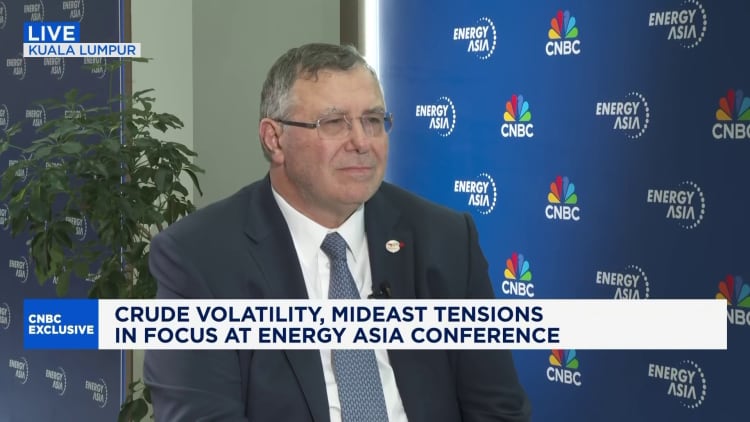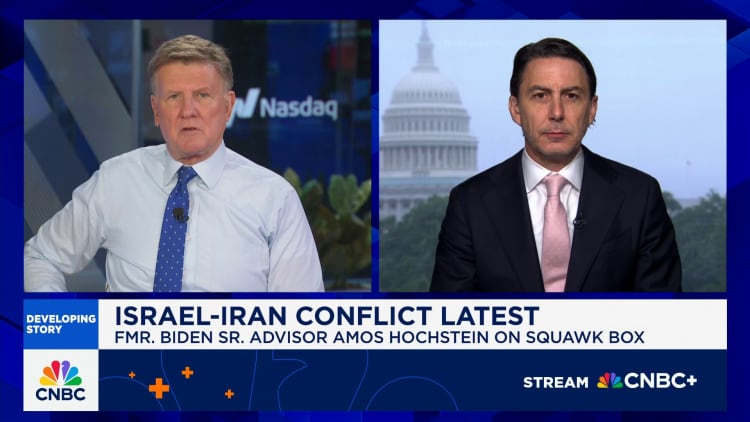Crude oil futures rose more than 2% Tuesday, after President Donald Trump called for the evacuation of Tehran as Israel and Iran traded strikes for a fifth day.
The U.S. crude oil contract for July delivery increased $1.58, or 2.2%, to $73.35 per barrel by 10:22 a.m. ET, while global benchmark Brent for August rose $1.82, or 2.49%, to $75.05.
Oil prices had closed lower Monday on reports that Iran was seeking a ceasefire with Israel. Prices are rising again after Trump left the Group of Seven summit in Canada early and demanded that everyone evacuate Iran’s capital city.
“Simply stated, IRAN CAN NOT HAVE A NUCLEAR WEAPON,” the president said on his social media platform Truth Social late Monday. “I said it over and over again! Everyone should immediately evacuate Tehran!”
Trump told reporters aboard Air Force One that he was looking for “a real end” to the conflict, not a ceasefire agreement. The president said he was “not too much in the mood to negotiate” with Iran. Trump said there was no specific threat that led to his call for people in Tehran to evacuate.
Markets mostly calm
The impact of the conflict on the oil futures market has been modest so far, with prices rising about 7% since Israel launched its air campaign against Iran’s nuclear and ballistic missile programs on Friday.
The oil market has been relatively calm in the face of the conflict because the world is well supplied with crude, said Amos Hochstein, former President Joe Biden’s senior energy advisor. OPEC+ is increasing supply to the market and U.S. production remains at record levels, Hochstein said.
Oil traders initially feared that Israel might strike Iran’s oil infrastructure in an effort to cripple the Islamic Republic’s economy. Israel has hit domestic energy facilities in Iran but has spared installations that export to the global market.

“What the market is seeing is this confidence that Israel is able to continue this escalation with Iran and the war against Iran without the Iranians being able to do very much in response,” Hochstein told CNBC’s “Squawk Box” on Tuesday.
Iran is the third-largest oil producer in OPEC and exports about 1.6 million barrels per day mostly to China, according to data from OPEC and the Energy Information Administration. The market is overlooking the risk that Israel could hit Iran’s export facilities and take barrels off the market, Hochstein said.
“The market believes it is able to handle it,” Hochstein said of a potential supply disruption.
The worst-case-scenario for the oil market would be an attempt by Iran to block the Strait of Hormuz in response to such an Israeli strike. The strait is a narrow waterway between Iran and Oman through which about 20% of the world’s oil passes.
Goldman Sachs has warned that such an event could push oil prices above $100 per barrel. But Tehran would likely think twice before making such a move because it could draw the U.S. into the conflict, Hochstein said.












